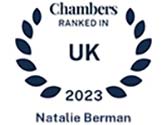Edward Fail Bradshaw & Waterson solicitors acting for Jacqueline Falcon are pleased to confirm her conviction on 30 July 2015 for fraud by abuse of position was quashed today at the Court of Appeal. This conviction was based on Horizon computer...
The recent decision by the Court of Appeal in the case of R-v-Plaku & Ors [2021] EWCA 568 makes clear that to be entitled to full credit, a plea (or indication) must be unequivocal at the first opportunity - being likely to plead is not enough to secure the full third.
It is long established that where a defendant in criminal proceedings pleads guilty, they are usually entitled to “credit” i.e. a discount, for that plea of guilty. Until 2003, this was simply an accepted practice by a sentencing judge however it was formally introduced by section 144 of the Criminal Justice Act 2003. Section 144(1) states that:
- In determining what sentence to pass on an offender who has pleaded guilty to an offence in proceedings before that or another court, a court must take into account—
- the stage in the proceedings for the offence at which the offender indicated his intention to plead guilty, and
- the circumstances in which this indication was given.
The Sentencing Council produced a guideline on the operation of the reduction for guilty plea, the most recent version dated 1 June 2017 (Guidelines have to be followed by a sentencing judge or court pursuant to section 59(1) of the Sentencing Act 2020 unless it would be contrary to the interests of justice to do so).
The Purpose and operation of Credit
Credit for a guilty plea is given to a defendant to reflect their admission of guilt rather than being found guilty after trial. The recognised rationale for providing a defendant with credit is identified within the guideline as:
- normally reduces the impact of the crime upon victims;
- saves victims and witnesses from having to testify; and
- is in the public interest in that it saves public time and money on investigations and trials.
This is particularly pertinent during serious allegations, and allegations where victims are children as it saves victims of crime from having to endure giving an account and being subjected to cross examination with their account being challenged.
Credit allows a defendant to have a maximum of a one-third (33% reduction) in their sentence. The guideline also allows for an alternate operation of credit including imposing an alternate sentence (i.e. reduction from a custodial sentence to a community order); keeping a sentence in the magistrates court rather than the crown court (i.e. effectively capping the sentence that can be imposed to 6 months for a single offence or 12 months for multiple offences).
Credit is however not fixed at one-third, it is the maximum and operates on a sliding scale from 33% down to 0%. This was the issue the court had to consider in Plaku
The Court of Appeal in Plaku
The facts of the case of Plaku are not particularly significant to the decision reached by the Court of Appeal. Plaku was in fact 3 appeals made by defendants joined with an attorney general’s reference for an unduly lenient sentence.
Plaku – conspiracy to supply class A drugs (Indictable only)
Bourdon – stalking and other similar offences (either-way)
Smith – aggravated burglary (Indictable only)
The established position in relation to Indictable only offences are that you cannot enter a plea of guilty to the magistrates’ as they are unable to hear your case. The allegations are triable on indictment only which means they must be dealt with by the Crown Court. As such, your first opportunity to plead would be at the Plea and Trial Preparation Hearing (PTPH). Plaku and Smith argued that the magistrates court hearing was not the first opportunity but in fact the PTPH was as the matters they faced were indictable only.
However, whilst that may be correct in law, the court of appeal has taken a different approach. Due to the introduction of the Better Case Management form (BCM) which is now completed at all magistrate’s court first appearances, the first available opportunity is in fact the magistrates’ court irrespective of if an individual can actual plead as the BCM form now allows for a defendant to indicate their plea. The analysis by the court of appeal therefore questioned the sufficiency of the indication given.
The BCM form (version dated 2 November 2020) must be used in all cases which states the following: Pleas (either way) or indicated pleas (indictable only) or alternatives offered. Warning: this information may affect credit for plea. If there is a limited basis of plea insert details in “real issues.
In respect of the BCM/plea for the cases on appeal, the following was the position:
Plaku – no written indication of plea merely informal indication of plea [of guilty]
Bourdon – G [guilty] pleas anticipated to most of these charges at PTPH. Court does not request PSR [pre-sentence report] given the vagaries over which offences will be G [guilty] pleas
Smith - At the first appearance before the magistrates' court, the "indicated pleas" section of the BCM form had been completed with the words "potential indicated plea". The "real issues in the case" section had been completed with the words "none known – possible basis of plea to be mooted".
Therefore, it would appear clear that guilty pleas were likely to coming in respect of all three defendants in one guise or another. Smith and Plaku both faced indictable only offences so the indications given would surely have been enough. The Court of Appeal disagreed in respect of each case.
Plaku - The appellants therefore could have indicated their guilty pleas at the first stage of the proceedings, and should have done so if they wished to be given full credit [Para 41].
Bourdon - We think this is clearly a case in which the appellant failed to give an unequivocal indication of guilty pleas at the first stage of the proceedings. On the contrary, he chose to keep his options open in the hope that he would ultimately be able to plead to fewer offences. The judge was therefore correct to limit the reduction to one-quarter. He could not properly have made any greater reduction [Para 56]
Smith - The simple fact is that at that hearing, Smith did not give an unequivocal indication of an intention to plead guilty. At most, an oral indication was given that he was "likely" to plead guilty. As we have made clear earlier in this judgment, a qualified indication of that kind is not sufficient to attract full credit. Smith's guilty pleas at PTPH could not attract more than a one-quarter reduction [Para 74]
Commentary
The case of Plaku now makes it clear that nothing less than a firm indication of plea (seemingly on full facts) will entitle a defendant to a full third credit. If there is any form of qualification that a plea may be on a basis, or any suggestion that a plea may or might or even likely that can only attract 25% credit at the next hearing. Credit will continue to decrease on a sliding scale until a plea attracts no credit at all (usually once a jury has been sworn and the trial has begun).
There will be very little wriggle room to argue that a defendant could not have offered an unequivocal plea at the first appearance except for in the most exceptional of circumstances, such as not having been provided any papers prior to the hearing by the prosecution or some other substantial issue.
Credit for plea is designed to cut down on wasted costs, further trauma to victims and increase accountability. Credit has always been quite a large carrot within the justice system to incentivise individuals to plead, however the Court of Appeal in Plaku decided it was time for the stick to come out and ensure that defendants are not just being able to chance their arm to see what evidence might be further served against them. In any event, the case makes clear that in order to obtain the full third credit, the simplest way is to write a single word on the BCM – Guilty!
For further advice, please get in touch by calling 020 7790 4032 (for out of hours, please call 07841 454 170) or by emailing main@efbw.co.uk
Liam Lane is a Trainee Solicitor at Edward Fail, Bradshaw & Waterson





